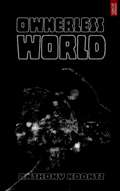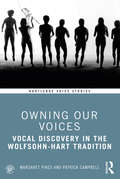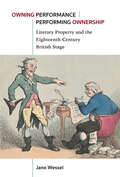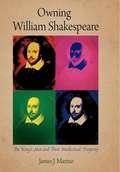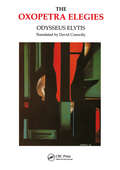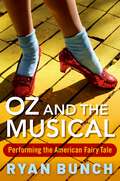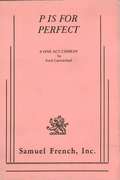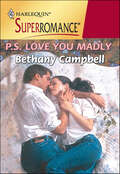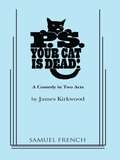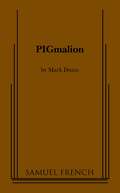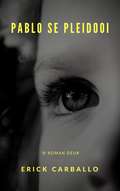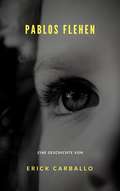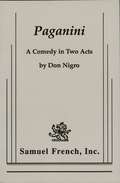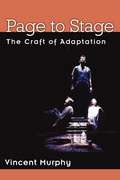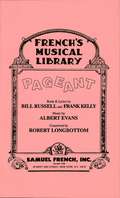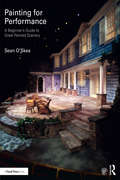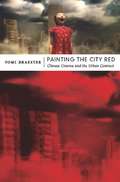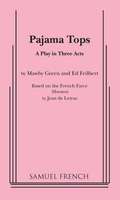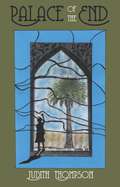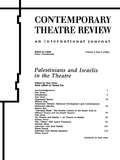- Table View
- List View
Over-Scheduled Andrew
by Ashley SpiresDebate. French film club. Bagpipes. Can Andrew do it all? From the award-winning creator of The Most Magnificent Thing comes a book about an charming chickadee who learns – with the help of a &“deer&” friend - that busy isn&’t always better.Andrew loves putting on plays so he decides to join the drama club at school. Determined to make his performance the best it can be, he joins the debate club to practice his public speaking. He signs up for dance and karate to help with his coordination. Then he's asked to play for the tennis team and edit the school newspaper. Before long he's learning to play the bagpipes, attending Spanish classes and joining the French film club. Suddenly Andrew doesn't have time for anything or anyone else, not even his best friend Edie. And he definitely doesn't have time to sleep. Will Andrew figure out how to balance all his favorite activities and his best friend at the same time? A hilarious look at over-scheduling, a common issue many kids today face.
Ownerless World
by Anthony KoontzThis is a book about power, politics, sex, religion and science. It presents a future world where the economy is declining and various corporations are fighting each other for global power. Meanwhile, a revolutionary new technology is being born: an artificial deity willing to help people defeat those who are controlling capital and the planet. It’s everything conspiracy theories never talk about. If God doesn’t exist, you must create Him.
Owning Our Voices: Vocal Discovery in the Wolfsohn-Hart Tradition (Routledge Voice Studies)
by Patrick Campbell Margaret PikesOwning Our Voices offers a unique, first-hand account of working within the Wolfsohn-Hart tradition of extended voice work by Margaret Pikes, an acclaimed voice teacher and founder member of the Roy Hart Theatre. This dynamic publication fuses Pikes’ personal account of her own vocal journey as a woman within this, at times, male-dominated tradition, alongside an overview of her particular pedagogical approach to voice work, and is accompanied by digital footage of Pikes at work in the studio with artist-collaborators and written descriptions of scenarios for teaching. For the first time, Margaret Pikes’ uniquely holistic approach to developing the expressive voice through sounding, speech, song and movement has been documented in text and on film, offering readers an introduction to both the philosophy and the practice of Wolfsohn-Hart voice work. Owning Our Voices is a vital book for scholars and students of voice studies and practitioners of vocal performance: it represents a synthesis of a life’s work exploring the expressive potential of the human voice, illuminating an important lineage of vocal training, which remains influential to this day.
Owning Performance | Performing Ownership: Literary Property and the Eighteenth-Century British Stage
by Jane WesselIn 1710, England’s first copyright law gave authors the ability to own their works, but it was not until 1833 that literary property law was extended to protect dramatic performance. Between these dates, generations of playwrights grappled for control over their intellectual property in a cultural and legal environment that treated print differently from performance. As ownership became a central concern for many, actors fought to possess their dramatic parts exclusively, playwrights struggled to control and profit from repeat performances of their works, and managers tried to gain a monopoly over the performance of profitable plays. Owning Performance follows the careers of some of the 18th century’s most influential playwrights, actors, and theater managers as they vied for control over the period’s most popular shows. Without protection for dramatic literary property, these figures developed creative extra-legal strategies for controlling the performance of drama—quite literally performing their ownership. Their various strategies resulted in a culture of ephemerality, with many of the period’s most popular works existing only in performance and manuscript copies. Author Jane Wessel explores how playwrights and actors developed strategies for owning their works and how, in turn, theater managers appropriated these strategies, putting constant pressure on artists to innovate. Owning Performance reveals the wide-reaching effects of property law on theatrical culture, tracing a turn away from print that affected the circulation, preservation, and legacy of 18th century drama.
Owning William Shakespeare
by James J. MarinoCopyright is by no means the only device for asserting ownership of a work. Some writers, including playwrights in the early modern period, did not even view print copyright as the most important of their authorial rights. A rich vein of recent scholarship has examined the interaction between royal monopolies, which have been identified with later notions of intrinsic authorial ownership, and the internal copy registration practices of the English book trades. Yet this dialogue was but one part of a still more complicated conversation in early modern England, James J. Marino argues; other customs and other sets of professional demands were at least as important, most strikingly in the exercise of the performance rights of plays.In Owning William Shakespeare James Marino explores the actors' system of intellectual property as something fundamentally different from the property regimes exercised by the London printers or the royal monopolists. Focusing on Hamlet, The Taming of the Shrew, King Lear, and other works, he demonstrates how Shakespeare's acting company asserted ownership of its plays through intense rewriting combined with progressively insistent attribution to Shakespeare. The familiar versions of these plays were created through ongoing revision in the theater, a process that did not necessarily begin with Shakespeare's original manuscript or end when he died. An ascription by the company of any play to "Shakespeare" did not imply that it was following a fixed, authorial text; rather, Marino writes, it indicates an attempt to maintain exclusive control over a set of open-ended, theatrically revised scripts.Combining theater history, textual studies, and literary theory, Owning William Shakespeare rethinks both the way Shakespeare's plays were created and the way they came to be known as his. It overturns a century of scholarship aimed at re-creating the playwright's lost manuscripts, focusing instead on the way the plays continued to live and grow onstage.
Oxford Reading Tree, Level 17, TreeTops Classics, Pack A: Macbeth
by William ShakespeareNo dramatist has ever seen with more frightening clarity into the heart and mind of a murderer than has Shakespeare in this compelling tragedy of evil. Taunted into asserting his "masculinity" by his ambitious wife, Macbeth chooses to embrace the Weird Sisters' prophecy and kill his king-and thus, seals his own doom. Fast-moving and bloody, this drama has the extraordinary energy that derives from a brilliant plot replete with treachery and murder, and from Shakespeare's compelling portrait of the ultimate battle between a mind and its own guilt. [This text is listed as an example that meets Common Core Standards in English language arts in grades 9-10 at http://www.corestandards.org.]
Oxopetra Elegies
by David Connolly Odysseas ElytesFirst Published in 1997. 'Geographically speaking 'Oxopetra' is a promontory on the island of Astypalaea. It is the 'other rock'. For me, it is the farthest point of the land in the sea, the farthest point of our era in another era, and the farthest point of my life in death... Odysseus Elytis.' Odysseus Elytis was born in Crete in 1911 and published the first of his poems in 1935. He was influenced by French Surrealism and travelled widely, and in post-war years lived in France with many other leading poets and artists of his generation. In 1979 he was awarded the Nobel Prize of Literature. The Oxopetra Elegies is a recent collection and is considered by many Greek critics to contain some of the finest and most important poems he has ever written. The Greek Poetry Archive features monographs on key modern Greek poets, from the nineteenth century to the present, and a bilingual collection of their poetry translated into English.
Oz and the Musical: Performing the American Fairy Tale
by Ryan BunchFrom the first stage production of The Wizard of Oz in 1902, to the classic MGM film (1939), to the musicals The Wiz (1975) and Wicked (2003), L. Frank Baum's children's novel The Wonderful Wizard of Oz (1900) has served as the basis for some of the most popular musicals on stage and screen. In this book, musical theater scholar Ryan Bunch draws on his personal experience as an Oz fan to explore how a story that has been hailed as "the American fairy tale" serves as a guide for thinking about the art form of the American musical and how both reveal American identity to be a utopian performance. Show by show, Bunch highlights the forms and conventions of each musical work as practiced in its time and context-such as the turn-of-the-century extravaganza, the classical Hollywood film musical, the Black Broadway musical of the 1970s, and the twenty-first-century mega-musical. He then shows how the journey of each show teaches participants and audiences something about how to act American within contested frameworks of race, gender, sexuality, age, and embodiment. Bunch also explores home theatricals, make-believe play, school musicals, Oz-themed environments, and community events as sites where the performance of the American fairy tale brings home and utopia into contact through the conventions of the musical. Using close readings of the various Oz shows, personal reflections, and interviews with fans, audiences, and performers, Bunch demonstrates how adapted Oz musicals imply both inclusions and exclusions in the performance of an American utopia.
P Is For Perfect
by Fred CarmichaelFarce / 5f / Interior / To relieve the boredom of their "perfect" lives as executive wives Mary, Millicent, and Violet invent a game. They prepare "surprises" for each other. Today it's Mary's turn and with the aid of Cora and Ms. Pex, two "ladies" from the top secret department of her husband's firm, she materializes the ultimate surprise. The strange and fascinating Ms. Pex is a robot-- a perfect woman. Or is she? Her honesty shows up the girls and makes them laugh, cry, get furious, start fights and threaten to leave their husbands. The unguessable final plot twist will leave the audience laughing.
P.S. Love You Madly
by Bethany CampbellFAMILY: YOU DON'T GET TO CHOOSE THEM!Darcy's mother and Sloan's father are in love and want to get married. But Darcy's sister is aghast and Sloan's aunt is appalled. That leaves Darcy and Sloan trying to make everyone see sense. No problem, right?But then their parents break up-thanks to a little help from the families-just when Darcy and Sloan are falling in love.... Compared to what these two go through, Romeo and Juliet had it easy!Don't miss this book by award-winning and bestselling author Bethany Campbell. It's guaranteed to be one of the funniest romances you'll read this year!
P.S. Your Cat Is Dead!
by James KirkwoodFull Length, Comedy / 3 m, 1 f / Int. / In the West Village of Manhattan, Jimmy Zoole, a thirty-ish actor is having a run of bad luck. He's been robbed twice (they even took the only copy of his first novel), fired from a play, has a cat on the critical list, a girl friend who's leaving, and he discovers a burglar hiding in his loft. To avenge his life, he ties "Vito" to the kitchen sink and keeps him prisoner over the long New Year's Eve. / "A darkly hued comedy...Raunchily funny. Wonderful show-biz dialogue that crackles." -L.A. Free Press
PAI NAZISTA, FILHO JUDEU
by Lázaro Droznes Stefania BatistaA incrível história do filho de um herói de guerra alemão, que se converteu ao judaísmo e emigrou a Israel. Essa ficção dramática reflete a incrível história baseada em um caso verídico do filho de um oficial alemão da Wehrmacht condecorado por sua valentia na Segunda Guerra Mundial, que se converteu ao judaísmo, abandonou a Alemanha e foi a Israel para se converter em cidadão israelita. Sua participação na Guerra do Líbano e seu confronto com os palestinos o colocam na mesma encruzilhada a qual deve ter enfrentado seu pai 40 anos antes: Deve enfrentar o dilema de todo soldado: Todas as ordens são lícitas e todas deve ser obedecidas? Qual é o limite da obediência devida? A disciplina militar exime o combatente de seus deveres morais e éticos? Toda a responsabilidade pertence à máxima hierarquia de uma organização militar ou a responsabilidade é compartilhada pelos níveis intermediários? Esta história confirma o que os gregos já sabiam: ninguém pode evitar seu próprio destino. Não importa o que façamos, ele sempre nos encontra.
PIGmalion
by Mark DunnDramatic Comedy / 9m, 8f (cross casting and double casting possible) Inspired by Pygmalion, Shaw's classic drawing room tale of language and class division, and its musical incarnation, My Fair Lady, the play tells the story of one Eliza Doolittle-the daughter of a hardscrabble Mississippi pig farmer-who sells homemade pork rinds at the Tri-Counties Fair and Livestock Show, and dreams of someday working as a waitress at "one of those nice downtown barbecue restaurants where all the tourists go." With the support of her best friend, a sassy Transgender firecracker named Miss Tiffany Box, patroness Ida Hill and her daughter Clara; and with Ida's instantly enamored son Freddy nipping romantically at Eliza's heels, Delta-drawlin' Eliza engages the services of a "Kudzu-league" college prof named Henry Higgins to take the country out of her speech and give her some semblance of class. Devotees of Shaw's original will delight in the transplantation of Eliza and Professor Higgins and his colleague Pickering to the American South. But this gentle, warm-hearted comedy gives us something else as well, a question for which everyone in the play must find the answer: how do we reconcile the way we present ourselves on the outside with who we truly are on the inside?
Pablo se pleidooi
by Erick Carballo"Pablo se pleidooi" is 'n roman waarin die eensaamheid, afknouery, ondeug en selfsug van 'n vader verweef is, en die onverskilligheid van 'n moeder wat haar seun aan sy lot oorlaat om 'n nuwe lewe met 'n man wat 'n belowende toekoms verseker. Pablo is 'n agtjarige seun wat net een vriend het wat hy kan vertrou, maar 'n reeks gebeure lei hom tot 'n tragiese lot.
Pablos Flehen
by Erick Carballo»Pablos Flehen« ist eine Geschichte, in der Einsamkeit, Mobbing, Alkoholismus, Egoismus und Grausamkeit eines Vaters verflochten sind mit der Gleichgültigkeit einer Mutter, die ihren Sohn seinem Schicksal überlässt, um ein neues Leben mit einem neuen Mann zu beginnen, der ihr eine neue Zukunft verspricht. Pablo ist ein achtjähriger Junge, der nur einen Freund hat, dem er vertrauen kann. Eine Reihe von Ereignissen führen zu einem tragischen Ende ...
Padre Nazista, Figlio Ebreo: L'incredibile storia del figlio di un eroe di guerra tedesco che si è convertito all'ebraismo ed è emigrato in Israele
by Lazaro DroznesQuesto drammatico racconto riflette l'incredibile storia basata su un caso realmente accaduto del figlio di un ufficiale tedesco della Wehrmacht insignito al valor militare durante la Seconda Guerra Mondiale, che si è convertito all'ebraismo, ha abbandonato la Germania ed è andato in Israele per diventare un cittadino israeliano. La sua partecipazione nella Guerra del Libano e il suo confronto con i palestinesi lo pone nello stesso dilemma che dovette affrontare suo padre 40 anni prima: il dilemma di ogni soldato: Tutti gli ordini sono leciti e bisogna obbedire a tutti? Qual è il limite di obbedienza dovuta? La disciplina militare esime il combattente dai suoi doveri morali ed etici? Tutte le responsabilità appartengono alla massima gerarchia di un'organizzazione militare o la responsabilità è condivisa dai livelli intermedi? Questa storia conferma ciò che i greci sapevano già: nessuno può evitare il proprio destino. Non importa ciò che facciamo, ci ritrova ugualmente.
Paganini
by Don NigroFarce / 7m, 5f, with doubling / Unit set / This wildly funny, demonic epic farce traces the bizarre career of virtuoso violinist Nicolo Paganini, a man so possessed during his performances that it was rumored he had sold his soul to the devil. Using Paganini's 24 Caprices for Violin as a haunting background, this nightmare play gallops through grotesque adventures as Paganini plays to spellbound audiences throughout Europe, the century's equivalent to a rock star. He leaves a trail of seduced women, enraged fathers and creditors and reportedly evades responsibility for a murder. A clockworks girl, a horrifying jack in the box, a trumpet blowing gorilla, a cymbals hanging bear, a barbershop quartet of murderous doctors, dead bird soup, Beethoven's ghost, an earsplitting diva, the king of France and other delights and horrors are encountered as Paganini moves toward his terrible destination. This inventive play employs theatrical conventions to tell the surreal story of a dark and twisted journey while probing the consequences of art and the nature of salvation for the artist.
Page to Stage: The Craft of Adaptation
by Vincent MurphyAt last, for those who adapt literature into scripts, a how-to book that illuminates the process of creating a stageworthy play. Page to Stage describes the essential steps for constructing adaptations for any theatrical venue, from the college classroom to a professionally produced production. Acclaimed director Vincent Murphy offers students in theater, literary studies, and creative writing a clear and easy-to-use guidebook on adaptation. Its step-by-step process will be valuable to professional theater artists as well, and for script writers in any medium. Murphy defines six essential building blocks and strategies for a successful adaptation, including theme, dialogue, character, imagery, storyline, and action. Exercises at the end of each chapter lead readers through the transformation process, from choosing their material to creating their own adaptations. The book provides case studies of successful adaptations, including The Grapes of Wrath (adaptation by Frank Galati) and the author's own adaptations of stories by Samuel Beckett and John Barth. Also included is practical information on building collaborative relationships, acquiring rights, and getting your adaptation produced.
Pageant
by Bill RussellMusical Spoof / 7m / Interior / One of the rowdiest farces ever staged, Pageant pits six beauty queens against each other in the Glamouresse annual extravaganza. Miss Texas, Miss Great Plains, Miss Deep South, Miss Industrial Northeast, Miss West Coast and Miss Bible Belt sing, dance and camp it up in gowns and bathing suits. A hilarious talent contest is equaled only by the zany "spokesmodel" event which requires them to hawk the sponsor's outrageous cosmetics. While les girls swirl around the charming host, judges from the audience decide who will be Miss Glamouresse. Rave revues appear in city after city when Pageant is in town.
Painting for Performance: A Beginner’s Guide to Great Painted Scenery
by Sean O'SkeaPainting for Performance removes the mystery from painting and gives beginners the terms, tools, and techniques to approach their unpainted set with confidence. Covering the mechanics of paint and its many implementations in set design, this book provides simple and effective step-by-step instructions for painting a variety of surfaces to look great on stage.
Painting the City Red: Chinese Cinema and the Urban Contract
by Yomi BraesterPainting the City Red illuminates the dynamic relationship between the visual media, particularly film and theater, and the planning and development of cities in China and Taiwan, from the emergence of the People's Republic in 1949 to the staging of the Beijing Olympics in 2008. Yomi Braester argues that the transformation of Chinese cities in recent decades is a result not only of China's abandonment of Maoist economic planning in favor of capitalist globalization but also of a shift in visual practices. Rather than simply reflect urban culture, movies and stage dramas have facilitated the development of new perceptions of space and time, representing the future city variously as an ideal socialist city, a metropolis integrated into the global economy, and a site for preserving cultural heritage. Drawing on extensive archival research, interviews with leading filmmakers and urban planners, and close readings of scripts and images, Braester describes how films and stage plays have promoted and opposed official urban plans and policies as they have addressed issues such as demolition-and-relocation plans, the preservation of vernacular architecture, and the global real estate market. He shows how the cinematic rewriting of historical narratives has accompanied the spatial reorganization of specific urban sites, including Nanjing Road in Shanghai; veterans' villages in Taipei; and Tiananmen Square, centuries-old courtyards, and postmodern architectural landmarks in Beijing. In Painting the City Red, Braester reveals the role that film and theater have played in mediating state power, cultural norms, and the struggle for civil society in Chinese cities.
Pajama Tops
by Mawby GreenMawby Green and Ed Feilbertfrom the French hit Magma by Jean de Letraz. Farce . Characters: 4 male, 3 female. Interior Set. It played three years in Paris and five in Hollywood before coming to New York, followed by 10 years coast-to-coast and six in London, making it one of the longest runs on record! The plot is all fun. The husband is planning a business trip for philandering purposes; his wife secretly invites this same voluptuous girl to spend the weekend. The husband is trapped. Out of the blue an old friend appears, with hands aflutter, followed by a gendarme who delights in cherchez les femmes. There is also a devilish looking butler, a maid practising to be a cocotte, and some wildly artful dodging, all calculated to keep the audience laughing. . "An utterly mad spoof of the French bedroom farce"-The New York World Telegram & Sun. "Prolonged laughter."-The New York Times . "The best entertainment in London."-London Sunday Times
Palace of the End
by Judith ThompsonBased around the lives of three distinct characters—a young soldier imprisoned for her misconduct at a prison camp in Iraq, a microbiologist-cum-weapons inspector who exposes the false justifications for war, and a mother/political opponent of Saddam Hussein—Palace of the End details the reality of the war in Iraq from three unique perspectives. With its emphasis on the human voice and power of the soul in the midst of a destructive war, each account is a riveting and brilliantly portrayed indictment of one of the contemporary world's worst conflicts.Winner of the 2008 Susan Smith Blackburn PrizeWinner of the 2008 Dora Mavor Moore Award for Outstanding New Play
Palestinian Theatre in the West Bank: Our Human Faces
by Gabriel VargheseSince the 1990s, Palestinian theatrical activities in the West Bank have expanded exponentially. As well as local productions, Palestinian theatre-makers have presented their work to international audiences on a scale unprecedented in Palestinian history. This book explores the histories of the five major theatre companies currently working in the West Bank: Al-Kasaba Theatre, Ashtar Theatre, Al-Harah Theatre, The Freedom Theatre and Al-Rowwad. Taking the first intifada (1987-93) as his point of departure, and drawing on original fieldwork and interviews with Palestinian practitioners, Gabriel Varghese introduces the term ‘abject counterpublics’ to explore how theatre-makers contest Zionist discourse and Israeli state practices. By foregrounding Palestinian voices, and placing theories of abjection and counterpublic formation in conversation with each other, Varghese argues that theatre in the West Bank has been regulated by processes of colonial abjection and, yet, it is an important site for resisting Zionism's discourse of erasure and Israeli settler-colonialism and apartheid. Palestinian Theatre in the West Bank: Our Human Faces is the first major account of Palestinian theatre covering the last three decades.
Palestinians and Israelis in the Theatre
by Dan UrianThe Jewish-Israeli theatre is a complex and developed system in which the dispute with the Palestinians constitutes just one of the important components in its repertoire; while the Palestinian theatre, both within and outside of Israel, is being consolidated. This work brings together these two approaches by relating to the Palestinian theme as it appears in the Jewish-Israeli theatre and by attempting to characterize the Palestinian theatre in general.

